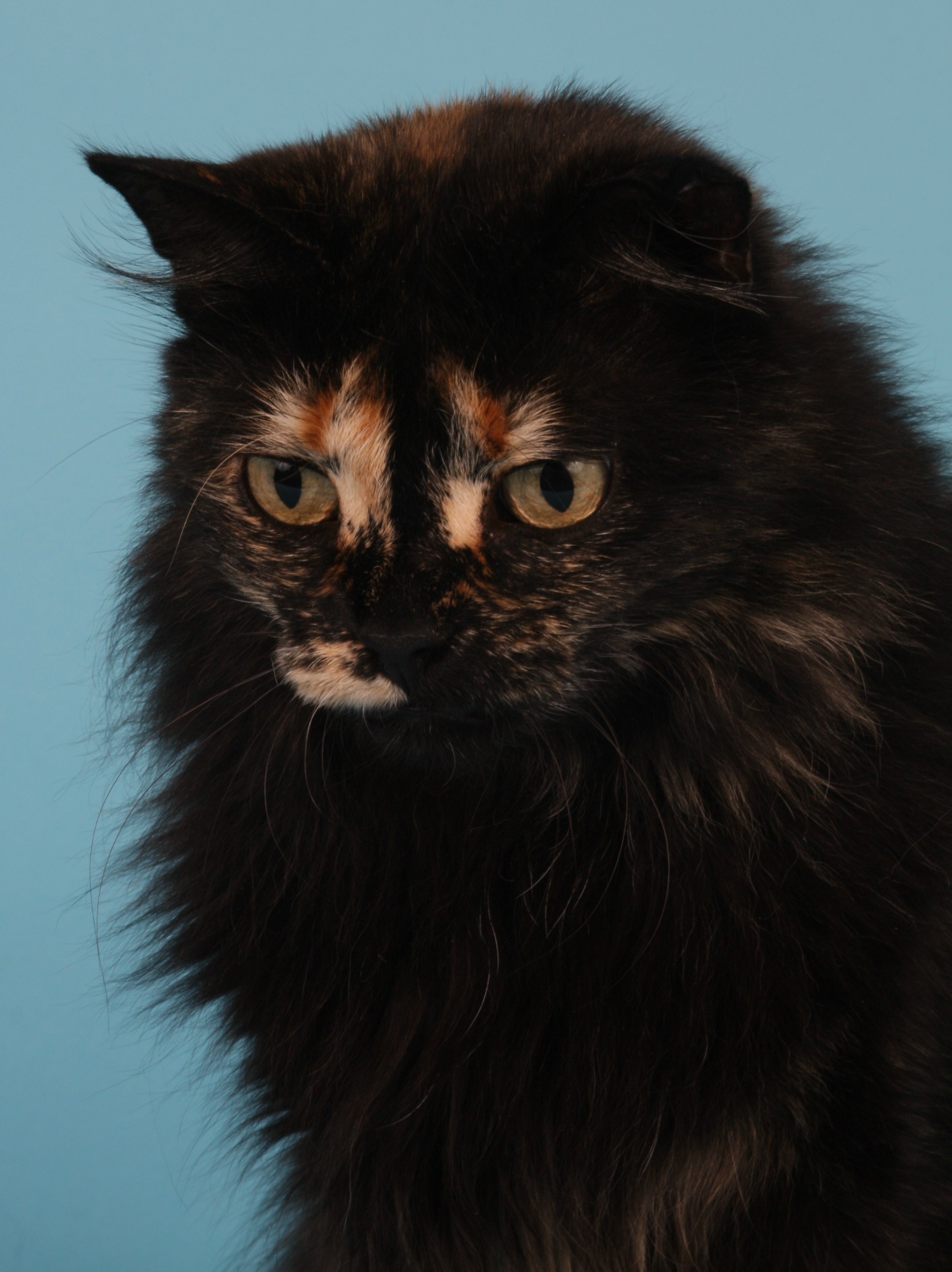
Acquired Immune Deficiency Syndrome (AIDS) is caused by the Human Immunodeficiency Virus (HIV). People contract the virus through unprotected sex or sharing needles.
Cats can suffer from a similar disorder, Feline Immunodeficiency Virus (FIV), a retrovirus in the AIDS family that impairs the cat’s ability to fight infections. FIV is found in felines worldwide including lions, tigers, cheetahs and cougars. One to three percent of visibly healthy domestic cats in the U.S. are actually infected with FIV. Around fifteen percent of sick kitties test positive for the disease.
The slow-acting autoimmune disease is sometimes called “the disease of angry cats” because it’s transmitted from cat to cat through bites. The most at-risk kitties are intact, outside males who fight over mates and territory. Unlike the human disease HIV, FIV is seldom directly transmitted through sexual contact, but the male cat can infect his lady friend with an amorous neck bite during mating. On rare occasions an infected mom cat can infect her kittens during birth or nursing.
People often confuse FIV with the Feline Leukemia Virus (FeLV), which is in the same retrovirus family. These two diseases cause many similar secondary complications, but unlike FIV (that requires aggressive contact), FeLV is passed through shared food bowls, litter boxes and mutual grooming. Because of this, FeLV is sometimes referred to as “the disease of “friendly cats”.
The best news is FIV is species-specific, meaning humans and dogs can’t catch it.
Disease Progression
Because it is such a slow-acting virus, an infected cat may appear healthy for many years. However, eventually the cat’s immune system declines and kitty will begin to suffer from secondary infections caused by bacteria, viruses and parasites that usually don’t affect healthy animals. Symptoms from secondary infections may wax and wane in severity for years.
Protecting Your Cat
You can protect your cat by preventing cat bites. Alter him and keep him inside and away from potentially-infected adversaries. Fortunately common bowls, litter boxes, mutual grooming or sneezing don’t appear to spread the virus, so cats who don’t fight are at little risk for contracting the disease even when living with an infected feline housemate.
For kitties who do go outside, there is an FIV vaccine available, but it has drawbacks. After receiving the FIV inoculation, cats will test FIV-positive for life. If your vet recommends the vaccine for your at-risk cat, have the cat tested beforehand. Make sure he has been implanted with a microchip and that the chip registration database is notified regarding his FIV status.
Don’t Abandon Hope

In the 1980s, my husband’s kitty Goofus, who was found living next to a dumpster, was brought in off the street and neutered at the age of eight. After he turned 11, Goofus developed a persistent inflammation of the gums (stomatitis). His vet pulled all his teeth, and treated the inflammation with steroids. Goofus made it to 19½, finally losing out to cancer.
Kiki, an orphan kitten, came to us with an abandoned litter when she was only two weeks old. When the four kittens were tested for viral diseases, Kiki was the only one who tested positive for FIV. Eleven years later, Kiki still tests positive, but remains healthy except for similar dental issues. In both cases, no other cats in the home contracted the virus.
If your kitty develops any of the symptoms below, take him to the vet immediately:
- Persistent fever, or bladder, skin or upper respiratory infections
- Weight loss or loss of appetite
- Dental disease including inflammation of the gums and mouth or bad breath
- Dropping food while eating
- Persistent diarrhea
- Conjunctivitis or chronic eye conditions
- Unkempt coat
- Enlarged lymph nodes
- Anemia
- Wounds that don’t heal
Caring for FIV-positive kitties

There’s no specific antiviral treatment for FIV, but some antiviral therapies may help FIV kitties who suffer with seizures or stomatitis. Vets work to keep kitties healthy as long as possible. Once symptoms appear they provide supportive care as secondary infections crop up.
Your vet will likely recommend:
- Altering your cat
- Keeping him exclusively inside to reduce stress and protect him from exposure to bacteria, parasites and other diseases
- Feeding a balanced diet. Avoid uncooked meat, as it may contain bacteria or parasites that would not affect a healthy cat, but may cause problems in immunity-compromised cats
- Monitor your cat for any symptoms listed above or changes in behavior
- Vet examinations every six months
- Treatment for secondary infections
- Anti-inflammatory drugs
- Immune-enhancing drugs
- Parasite control
If you reduce your kitty’s stress, keep him inside, monitor changes and treat secondary issues as they arise, your FIV kitty may have months to years of good health.










11 years ago I took in Timus. He was tested at that time as negative, but a couple of years later he got sick and then tested positive. He heals from injuries slower, but he also scratches them a lot. Now, at 12, he’s a healthy, happy boy.